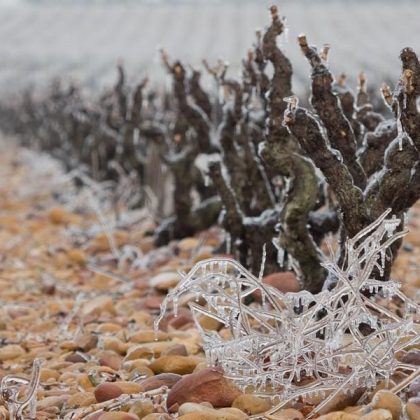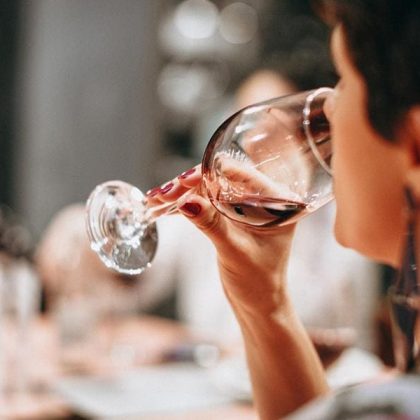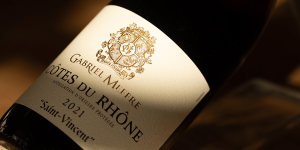Our Winery on international markets: Destination Asia!
A growing thirst for wine in Southeast Asia
Singapore, Thailand, Vietnam, Indonesia, Malaysia and the Philippines are just some of the countries where French wine is experiencing an upswing. While beer has held the monopoly in Asia since too long to remember, wine consumption has been on the rise for the past five years. And not just because of high tourist numbers.
‘What I find most interesting is reaching out to the consumers in each market, especially the generation in their thirties who are particularly swayed by imported products and obsessed with finding the latest trends,” explains Aurélien d’Arzac, Export Sales Manager. ‘It’s actually a real challenge to carve a niche for yourself there because the average Asian consumer has access to a wide range of wines from countries like Australia, New Zealand, South Africa and so on. They also have a variety of tastes.’
At Gabriel Meffre, we take real pleasure in developing products for Asia because we want to promote our brand and learn the market. It’s a win-win situation. Because we have made our interest in all these countries crystal clear, the confidence is reflected back at us. Consumers now know and recognise our name.
The Chinese market: no faceless exports
French wine sales have exploded in China over the past 15 years. Wines from France were even the first bottles imported on the basis of their excellent reputation. But times have changed !
No-one appreciates this more than Aurélien: ‘Until then, you just had to meet demand and, provided you did, there was no reason to go over there. These days you need to have experienced experts on the Chinese market physically in the country to oversee your wine sales. Especially when you represent a high-end >inery from the Rhone Valley that isn’t at the entry level so popular over there. It’s the human touch that makes all the difference.’
Understanding cultural differences
In the export business, understanding the person you are dealing with is crucial. It’s a belief we swear by. ‘As Europeans, the cultural differences and social conventions in China are so different from ours that they can lead to all kinds of serious misunderstandings. You need to keep this at the front of your mind when approaching this market to avoid any major obstacles or even killing any chance of forging trade ties at all.’ This entails, for example, getting to know your business contacts over dinner before talking business. Only then will you have laid the foundations for a relationship based on trust and loyalty.
Adapt while staying true to yourself
What is notable about these regions is that they change exceptionally fast because the countries are high-growth markets. ‘New concepts are regularly brought onto the market but their lifespan can be short. The aim is to know what will last and what will disappear in the blink of an eye so as to inform you about the right choices to make in terms of the products we want to offer. For example, metallic labels were all the rage last year. By the time we had the capacity to offer them and had carried out all the requisite tests with our lines and printers, metallic labels were last season!’ Intricate market knowledge is therefore a vital asset for the sales manager.
While we are more than happy to adapt to specific local conventions (such as developing labels with red and gold colours for China!), we do not, however, produce special wines to cater to a particular market. ‘We feel it’s important to have a story to tell, to own our difference. Of course we are open to innovation, but always under the Winery’s umbrella brand, a guarantee of quality for our customers,’ concludes Aurélien.
Excellent interpersonal skills are at the crux of everything we do. Understanding how we can best share our unique expertise and promote our wines beyond our borders has become something of a passion of ours!
Crédits photos : Fabio Ingrosso – VinoFamily Creative Commons Traitement photo : recadrageRubrics
Découvrez plus d'articles...

The vineyard and wine cellar in winter
What happens in the world of wine during the winter period? After the hustle and bustle of autumn, the harvests and vinification process, comes winter, a season devoted to maturation and looking after the vines.

In 2018, we will continue to strive to be a Responsible Company!
In this new year, our wish to help build a world that respects both mankind and the environment is as strong as ever. This can be seen through the number of our projects for 2018 that are closely related to our convictions as a Responsible Winery. We’re delighted to be given the opportunity to tell you about them!

Discovering the art of pairing wine and chocolate
A morsel of white chocolate, Black Forest gâteau, pieces of stem ginger wrapped in chocolate, or Mexican chicken in chocolate sauce—all very appetising, but which wine would you serve with each one? Food and wine pairings factor in a combination of elements, such as the terroir, our powers of concentration, the circumstances of the tasting session, our sense memory and more. We guide you through some of the basic principles of this fascinating world!







